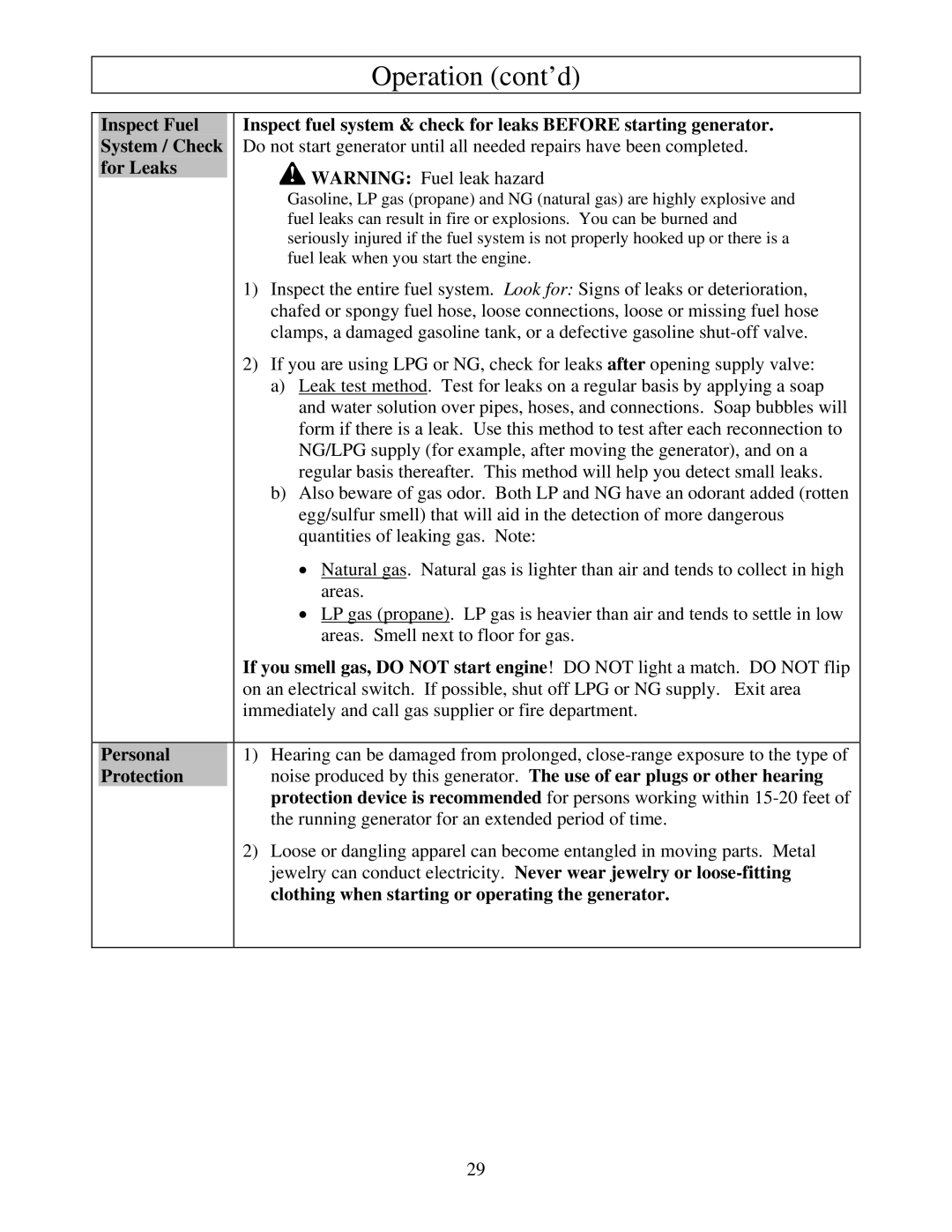
Operation (cont’d)
Inspect Fuel System / Check for Leaks
Personal
Protection
Inspect fuel system & check for leaks BEFORE starting generator. Do not start generator until all needed repairs have been completed.
![]()
![]()
![]()
![]() WARNING: Fuel leak hazard
WARNING: Fuel leak hazard
Gasoline, LP gas (propane) and NG (natural gas) are highly explosive and fuel leaks can result in fire or explosions. You can be burned and seriously injured if the fuel system is not properly hooked up or there is a fuel leak when you start the engine.
1)Inspect the entire fuel system. Look for: Signs of leaks or deterioration, chafed or spongy fuel hose, loose connections, loose or missing fuel hose clamps, a damaged gasoline tank, or a defective gasoline
2)If you are using LPG or NG, check for leaks after opening supply valve:
a)Leak test method. Test for leaks on a regular basis by applying a soap and water solution over pipes, hoses, and connections. Soap bubbles will form if there is a leak. Use this method to test after each reconnection to NG/LPG supply (for example, after moving the generator), and on a regular basis thereafter. This method will help you detect small leaks.
b)Also beware of gas odor. Both LP and NG have an odorant added (rotten egg/sulfur smell) that will aid in the detection of more dangerous quantities of leaking gas. Note:
•Natural gas. Natural gas is lighter than air and tends to collect in high areas.
•LP gas (propane). LP gas is heavier than air and tends to settle in low areas. Smell next to floor for gas.
If you smell gas, DO NOT start engine! DO NOT light a match. DO NOT flip on an electrical switch. If possible, shut off LPG or NG supply. Exit area immediately and call gas supplier or fire department.
1)Hearing can be damaged from prolonged,
2)Loose or dangling apparel can become entangled in moving parts. Metal jewelry can conduct electricity. Never wear jewelry or
29
